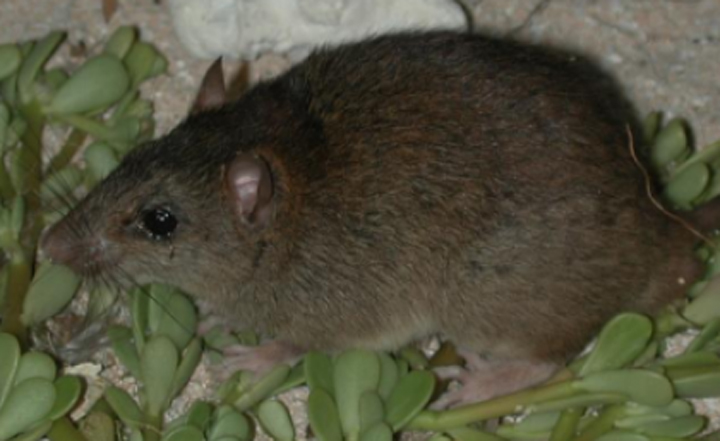Australian scientists are declaring the Bramble Cay melomys extinct, citing human-caused climate change as a major factor.

The Bramble Cay melomys was only found in a small region in the northeast Torres Straight, Queensland. In 2008, it was listed as critically endangered on the International Union for Conservation of Nature’s (IUCN) Red List.
READ MORE: Scientists say Mexico’s Vaquita porpoise dangerously close to extinction
Now, after an extensive survey on the small island, scientists were unable to find any trace of the animal at all.
“A thorough survey effort involving 900 small animal trap-nights, 60 camera trap-nights and two hours of active daytime searches produced no records of the species, confirming that the only known population of this rodent is now extinct,” Luke Leung of the University of Queensland and author of the study said.
“Available information about sea-level rise and the increased frequency and intensity of weather events producing extreme high water levels and damaging storm surges in the Torres Strait region over this period point to human-induced climate change being the root cause of the loss of the Bramble Cay melomys.”
The last sighting of the rodent is believed to have been in late 2009.
The scientists add, however, that a population may exist on the Fly River delta of Papua New Guinea.
“Consequently, at this stage, it may be premature to declare the Bramble Cay melomys extinct on a global scale.”
Included in the list of recommendations, the study suggests that the IUCN change the state of the Bramble Cay melomys from “critically endangered” to “possibly extinct.”
“The key factor responsible for the extirpation of this population was almost certainly ocean inundation of the low-lying cay, very likely on multiple occasions, during the last decade, causing dramatic habitat loss and perhaps also direct mortality of individuals,” the study concluded.
In March 2014, efforts to find the Bramble Cay melomys were unsuccessful. The researchers once again visited the site from Aug. 29 to Sept. 5 that year. They had hoped to find some of the rodents and conserve them. However, their traps, cameras and daytime searches were once again unsuccessful.
In 1999, the golden tree frog was thought to have gone extinct due to climate change. However, that claim was called into question, as there was limited climate data for that region of the Amazon rainforest.


Comments